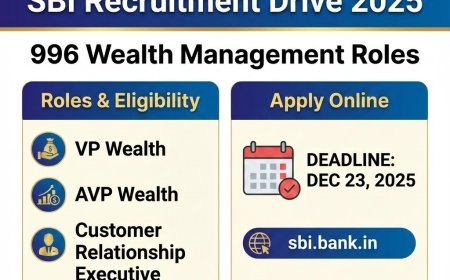NISM Series V A Mutual Fund Distributors Exam Series - 15
NISM Series VA Mutual Fund Distributors Exam Series - 15
Q 1. How long should the sponsor be carrying on business in financial services according to SEBI regulations?
a) Not less than 1 year
b) Not less than 3 years
c) No less than 5 years
d) Not less than 7 years
e) Not less than 10 years
Q 2. Which agencies have been appointed by AMFI to provide a valuation matrix for debt securities?
a) CRISIL Ltd. and ICRA Ltd.
b) SEBI and RBI
c) AMFI and NISM
d) AMCs and RTAs
e) Custodians and Auditors
Q 3. What is the primary objective of SEBI's mutual fund regulations since their inception in 1996?
a) Maximizing profits for asset management companies
b) Protecting the interests of mutual fund investors
c) Promoting speculative trading
d) Minimizing regulatory oversight
e) Encouraging excessive risks in investments
Q 4. What action is required from the AMC in case of other changes not related to fundamental attributes?
A) Immediate revision of SID
B) Issuance of an addendum and website display
C) Public announcement on television
D) Circulation of printed brochures
E) None of the above
Q 5. According to SEBI, what distinguishes an investment advisor from a distributor?
a) The number of products they sell
b) Their business model and revenue streams
c) Their level of experience in the financial industry
d) The type of clients they serve
e) None of the above
Q 6. What is required for investors to register for a CAN at MFU?
a) A bank account number
b) Submission of physical documents
c) KYC compliance
d) Approval from AMCs
e) Membership with AMFI
Q 7. How do fair valuation principles address the vulnerability of short-term debt-oriented schemes to redemption pressure?
a) By increasing the management fees
b) By limiting the number of new investors
c) By adjusting the valuation of investments by market conditions
d) By freezing redemptions during times of market volatility
e) None of the above
Q 8. How is GST on exit load handled in mutual fund schemes?
a) GST on exit load is not applicable
b) GST on exit load is charged separately to investors
c) GST on exit load is deducted from the exit load amount
d) GST on exit load is paid by the asset management company (AMC)
e) GST on exit load is credited to the scheme
Q 9. What type of mutual fund scheme would a fund-of-funds investment in other equity mutual fund schemes be classified as for income tax purposes?
a) Equity-oriented scheme
b) Non-equity-oriented scheme
c) Hybrid scheme
d) Balanced scheme
e) None of the above
Q 10. How is the amount transferred to an STP determined?
a) It is a fixed amount decided by the mutual fund.
b) It is a variable amount based on market conditions.
c) It is decided by the investor for each transaction.
d) It is determined by the fund manager's discretion.
e) It is based on the investor's net worth.
Q 11. What happens during the Scheme Re-Opening Date for open-ended schemes?
a) Investors can subscribe to the NFO
b) Investors can offer their units to the scheme or buy new units
c) Investors can sell their units on the stock exchange
d) Investors can switch between different schemes
e) Investors can withdraw their investments without penalty
Q 12. What is the primary function of the Unified Payment Interface (UPI)?
a) To facilitate fund transfer between accounts through a mobile app
b) To provide investment advice
c) To manage stock portfolios
d) To issue mutual fund units
e) None of the above
Q 13. Which regulatory body has mandated the requirement for non-individual investors to provide Ultimate Beneficial Owner (UBO) details?
a) FDA
b) SEBI
c) IRS
d) SEC
e) FEMA
Q 14. Who can be specified as a guardian for a minor nominee in a mutual fund investment?
a) Only individuals
b) Only financial institutions
c) Only legal firms
d) Only government agencies
e) Only relatives of the minor
Q 15. How might delays or changes in the development of conducive policy frameworks impact investments in a mutual fund scheme?
a) Increase returns on investments
b) Decrease market volatility
c) Improve liquidity of securities
d) Adversely affecting investments
e) Enhance political stability
Find More Mock Tests Here



